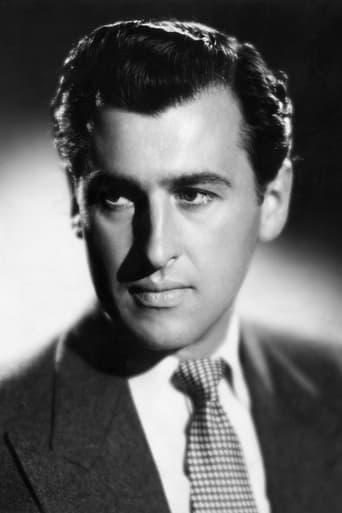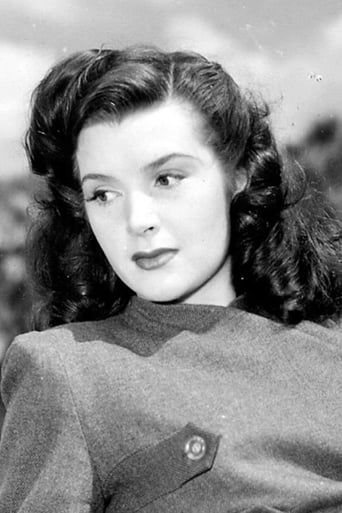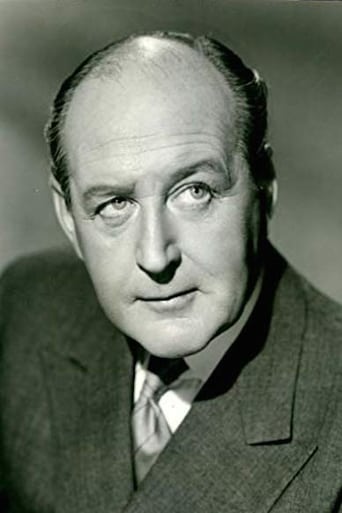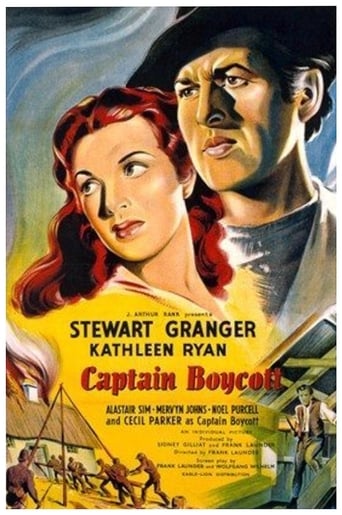
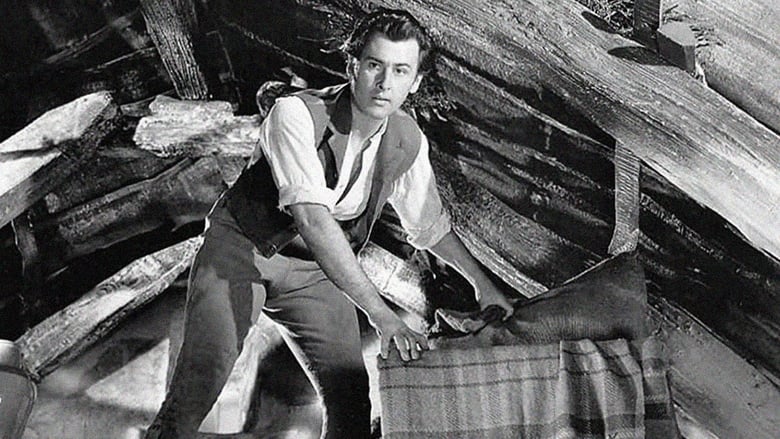
Captain Boycott (1947)
Based on real events, this historical drama is set in 19th-century Ireland, when poverty-stricken tenants dispossessed by greedy landowner Capt. Boycott (Cecil Parker) band together to assert their rights. Patriotic farmer Hugh Davin (Stewart Granger) leads the rebels. Choosing nonviolent resistance, the villagers ostracize their nemesis, who squanders his fortune to repair his ruined reputation and wagers what's left on a horse race.
Watch Trailer
Cast


Reviews
Powerful
This is a tender, generous movie that likes its characters and presents them as real people, full of flaws and strengths.
It's a good bad... and worth a popcorn matinée. While it's easy to lament what could have been...
By the time the dramatic fireworks start popping off, each one feels earned.
Captain Boycott is directed by Frank Launder and adapted to screenplay by Wolfgang Wilhelm from the novel written by Philip Rooney. It stars Stewart Granger, Kathleen Ryan, Cecil Parker, Mervyn Johns and Alastair Sim. Music is by William Alwyn and cinematography by Wilkie Cooper.Ever wondered where the term to "boycott" something comes from? The answer lies within this enjoyable historical drama. Story is set in County Mayo circa 1880 and finds Parker as Captain Charles Boycott, a tyrannical British land owner who demands inflated rent charges from the local Irish farmers. With next to nobody able to pay such charges, this allows Boycott to evict the families from the premises. Finally having enough, the farmers, fronted by Hugh Davin (Granger), take their lead from a stirring speech by political reform agitator Charles Stewart Parnell (Robert Donat) and form the Irish Land League. Instead of using violence, they ostracise Boycott to the point where he has to seek outside military help to harvest his crop or face financial ruin... In the mix is a love story, naturally, as Davin falls for the sultry charms of Ryan's Anne Killain. A problem since Anne and her father (Niall MacGinnis) have been housed in the farm of recent evictees, thus incurring death threats and ostracisation themselves. Launder moves it along without fuss and filler, neatly guiding a fine ensemble cast to produce quality drama decked with politico intrigue, while the actual location photography in Southern Ireland is ripe with realism and countryside delights. There's a small irritant with British actors doing iffy Irish accents, and some back screen projection work briefly cheapens the otherwise impressive efforts of the makers, but this is a well constructed and enjoyable film with some substantial historical worth. 7.5/10
Cecil Parker in my humble opinion got his career characterization with the title role in Captain Boycott. This man made a career of playing oafish characters and in this film he plays an oaf who enters our language. The key to understanding the character of Captain Boycott is that he doesn't think of himself as evil. He's merely defending the established social order in Ireland as it has come down for generations. The fact that he's on top of the order is merely the good judgment of the Deity who put him there. The problem with these tenant farmers whom he evicts for lack of rent payment is that they need a little military discipline, the kind Parker had in the British army.We also have to remember that this is not the factual story of Captain Boycott, though the film does come close to the actual story. It's a romance with Boycott in the background between tenant farmer Stewart Granger and Kathleen Ryan who has come with her family to live in County Mayo and take over one of the farms that Parker has evicted the original owners from. The film is based on the historical novel Captain Boycott by Philip Rooney.To put it in language that Americans can understand what Ryan and her father Niall McGinniss are, are scabs. The Irish Land League that Charles Stewart Parnell organized was essentially a union of tenant farmers. Before the Land League, an owner or agent like Boycott when they evicted a tenant family, they merely moved in another until that one couldn't pay the rent. The social position of these scab farmers was at best a tenuous one.What Robert Donat in his brief appearance in the film as Parnell proposes is that the shunning be made formal. So Boycott as he puts it has to go twelve miles to find a barber willing to cut his hair. Shunned too are McGinniss and Ryan and their family until the film is over and Granger and Ryan can come together without politics interfering.One weakness of the film is the fact that the religious differences are not even mentioned and that's critical. It's rather well known that Parnell was a Protestant and viewed as a traitor to his class for that as well as being a landowner himself. The harvesters that Boycott imports to break the Land League are from Ulster and also Protestants.Religion is not left completely out. Winking and nodding at the activities of the Land League is Alastair Sim as the village priest. In fact the Catholic Church turned out for the whole of the 19th century to be a bulwark of the British occupation. Sim's an exceptional and wise priest, but it was only in the following century that the church turned from being against rebellion to a neutral stance.Robert Donat is a wonderful Parnell, far better with his aesthetic personality than Clark Gable was in MGM's disastrous biographical film. It was a part Donat was born to play and I only wish he'd done a full length biographical film of Parnell during his career.So by the shunning of Captain Boycott by nearly all in County Mayo his name entered the English language as a term for avoiding as a public policy. And the film Captain Boycott is a fine retelling of that tale.
Captain Charles Cunningham Boycott is one of those figures in history who by their careers or actions actually contributed to our language - usually without thinking about it. Lord Cardigan, who led the charge of the Light Brigade in the Crimean War, wore a tight sweater which still bears his name. Lord Brougham, the great lawyer and Lord Chancelor, had a special carriage designed for him, which is named for him. William Burke (with his partner William Hare) suffocated a dozen people to sell their bodies to Dr. Robert Knox, the anatomist. The method of suffocation is still called "burking". Reverend Spooner's weird confusion of letters and syllables is still called a "spoonerism". The edited censorship of literary masterpieces is called bowdlerizing after Bowdler the originator of the censorship.Captain Boycott is remembered for not what he did or wore or said. He is recalled for what was done to him because of his behavior to others. In 1878 the lower classes in Ireland began a series of acts of violence against landlords, especially Protestant landlords. The reasons were connected with unfairly high rents and misuse of economic power to force people to do what their landlords wanted them to do. The worst incidents resulted in the murders of landlords (Lord Leitrim in 1878, Lord Mountmorres in 1880) and Mr. Walter Bourke (an agent for a landlord) in 1882. Boycott was a rather heavy handed landowner, who threw out tenants who did not do what he wanted (including voting for Tory candidates). He became targeted for punishment, but what happened turned out to be more effective and less bloody than what happened to Leitrim, Mountmorres, and Bourke.On the advice of cooler heads than armed terrorists, such as political leader Charles Stewart Parnell, it was advised to socially and emotionally ostracize Boycott. Instead of threatening his possession of his estate (which would allow him to call in British troops) the locals would not sell him needed food or supplies, nor do work on his estate, nor even talk to him and his staff. This ostracism (now called "boycotting") proved very effective - it led to Boycott, after nearly half a year's struggle, to give up his estate and leave Ireland forever.The movie basically tells the story, with Cecil Parker actually playing the central role of Captain Boycott. Parker plays one of his rare negative characters, but he has moments of typical befuddled Parker humor (when talking to a friend about the unwanted London reporters in his home following the ostracism campaign, he notes the reporter for the TIMES appears to be drunk under his dinner table - we see the man's legs).Since he is the villain actually (with Mervyn Johns as his sneaky estate agent ably assisting him), we look elsewhere for our hero. Here it is Stewart Granger, as an independent minded tenant of Boycott's, whose prize race horse excites the Captain's greed. But Granger is also a voice of reason. Although he doesn't care for Parnell (he mentions rumors about Parnell's sex life), he hears the great man give a speech advocating peaceful protest rather than violence. This is how the campaign against Boycott begins.Alistair Sim plays the local Catholic pastor, who also counsels peaceful protest. Noel Purcell plays an interesting semi-villain - the local schoolteacher who is an accomplished agitator (for violence). And playing Parnell for one scene only is Robert Donat, who gives the great man's speech his normal eloquence, and actually looks like Parnell (unlike Clark Gable in the 1939 biographical fiasco from Hollywood). A little stiff at times, it is (on the whole) a wonderful example of a good historical movie. As such I recommend catching it when you can.
This was the film that caught the eye of Hollywood. The Americans saw a tall, dark and fairly handsome man that could lead their movies.The best thing that happened to Granger in the 1940's was being teamed up with James Mason as his nemesis. Granger was the protagonist and Mason was the sinister antagonist whom we had sympathy for.


